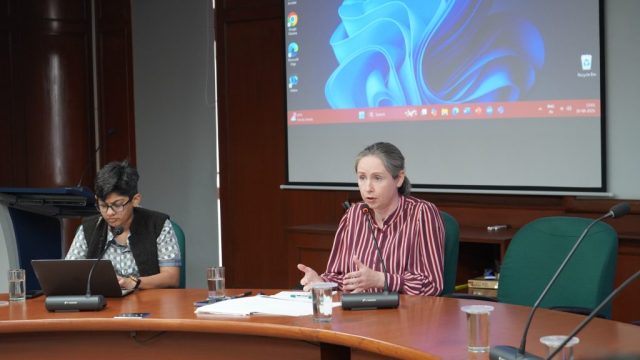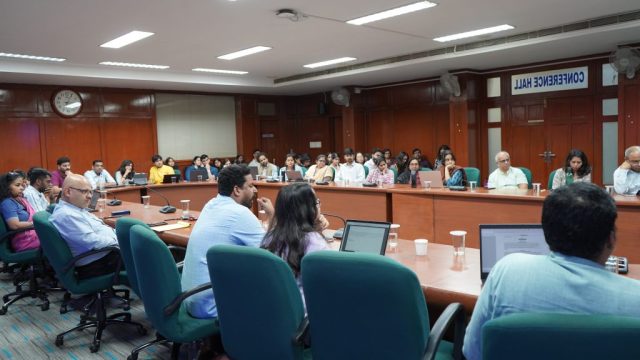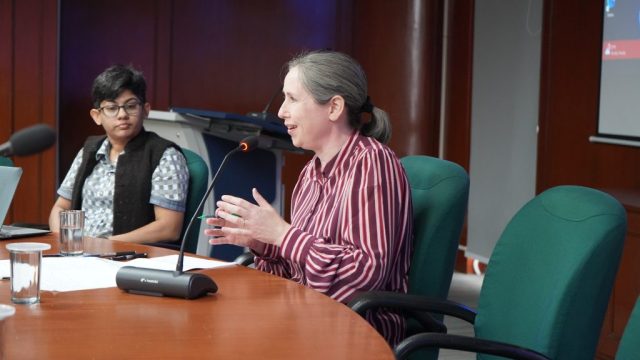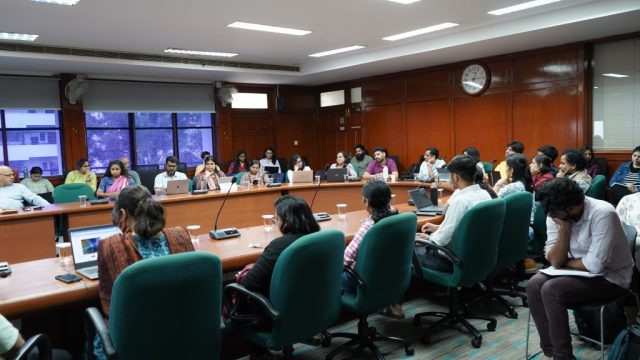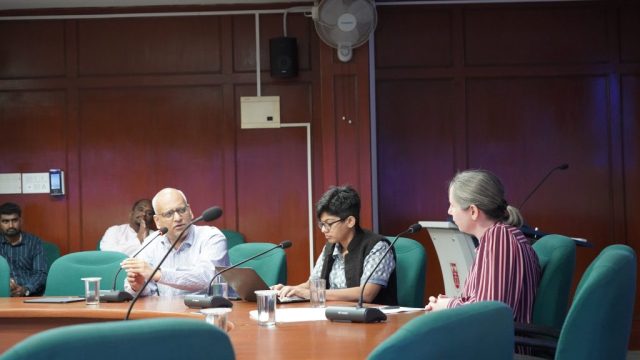NLS Faculty Seminar | Reconciling Conflicts Between Fundamental Principles Of Public Law And Of Private Law Within Private Law Adjudication
Ground Floor Conference Hall, Training Centre
Wednesday, August 20, 2025, 2:30 pm
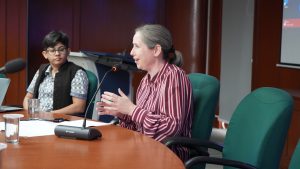 In this week’s faculty seminar, Dr. Niamh Connolly, Associate Professor in the Faculty of Laws at University College London (UCL), presented her paper titled “Reconciling conflicts between fundamental principles of public law and of private law within private law adjudication.” The seminar was held on August 20, at 2:30 pm, in the Ground Floor Conference Hall at NLSIU’s Training Centre.
In this week’s faculty seminar, Dr. Niamh Connolly, Associate Professor in the Faculty of Laws at University College London (UCL), presented her paper titled “Reconciling conflicts between fundamental principles of public law and of private law within private law adjudication.” The seminar was held on August 20, at 2:30 pm, in the Ground Floor Conference Hall at NLSIU’s Training Centre.
Abstract
How should private law respond when a legal dispute involves a conflict between important principles that originate in public law and private law respectively? This paper proposes an approach that involves, at its core, attaching due weight to the considerations of both public and private law. Neither sort of principle should be viewed as categorically more important. Nor are public law principles somehow beyond comprehension for those engaged in private law adjudication. Private law judges are fully capable in engaging in reasoning that takes into account rules governing the use of public power. It might seem that the fundamental principles and policies at issue are incommensurable and cannot be weighed against each other. However, it becomes possible to attach due weight to them when we focus on how each principle is actually engaged on the facts of each case. Just as we all make judgments that balance incommensurable considerations every day, the common law regularly balances competing principles and policies. There are several techniques that the law uses to achieve the appropriate compromises between competing considerations. Sometimes it constructs a route map of rules and exceptions that enables us to plot a path that takes due account of a range of salient factors. Sometimes, instead, the law allows judges to engage in evaluative decision-making that responds organically to the facts of each case. Either technique might enable us to achieving a balance between conflicting public law and private law considerations.


